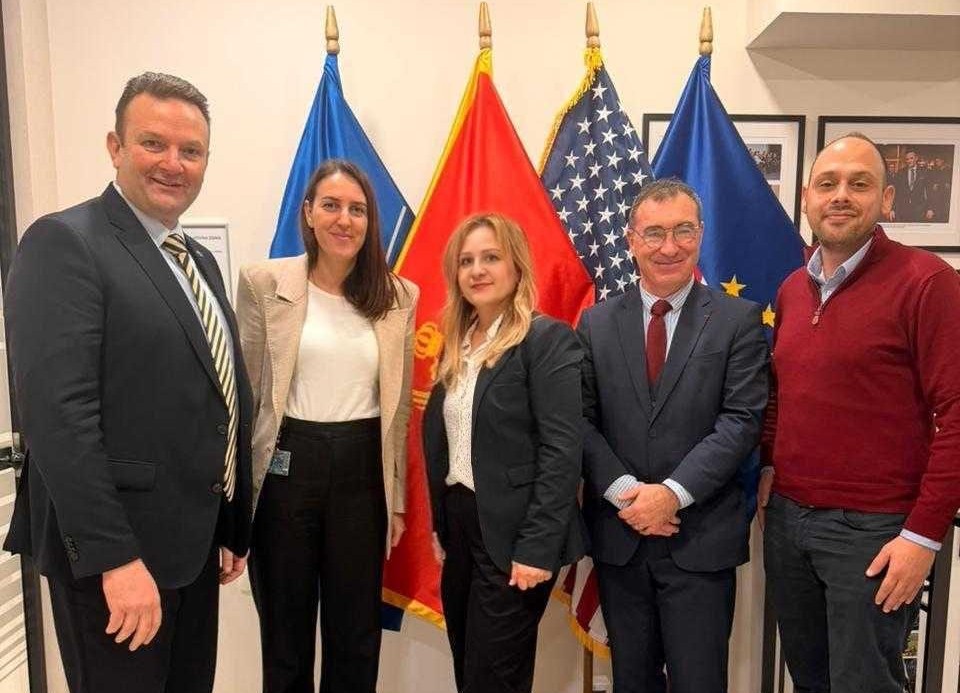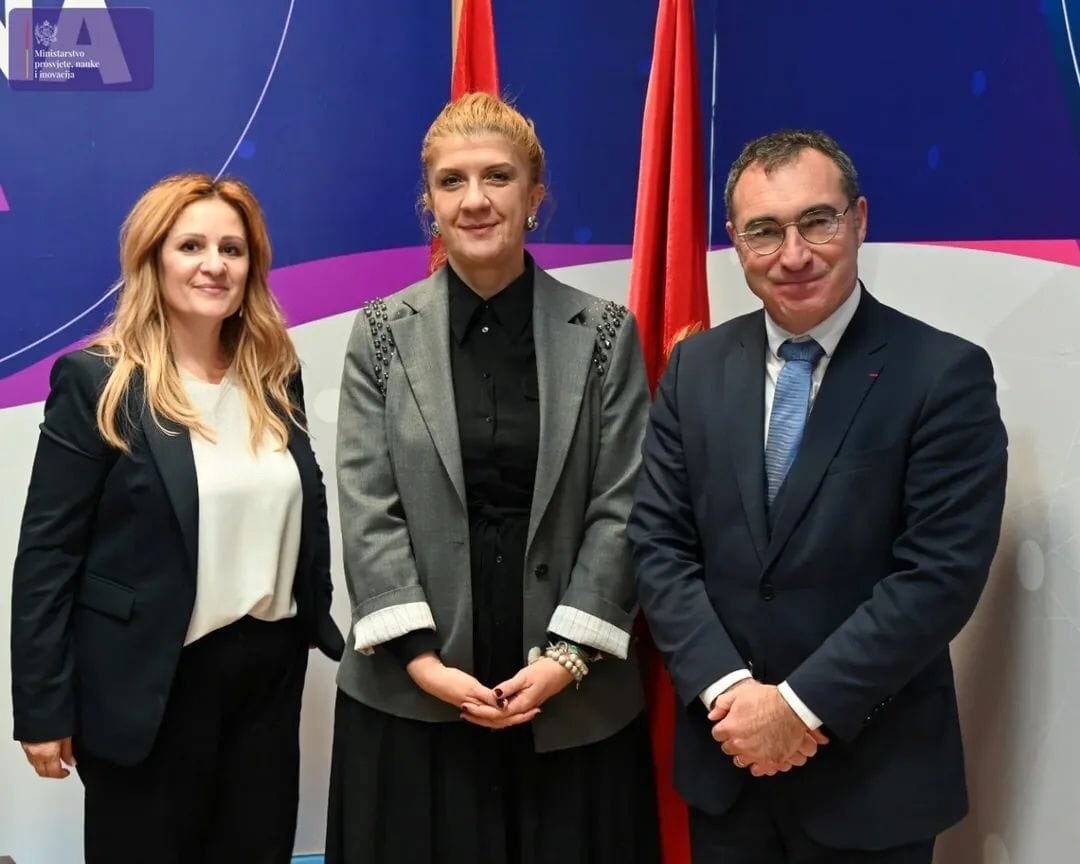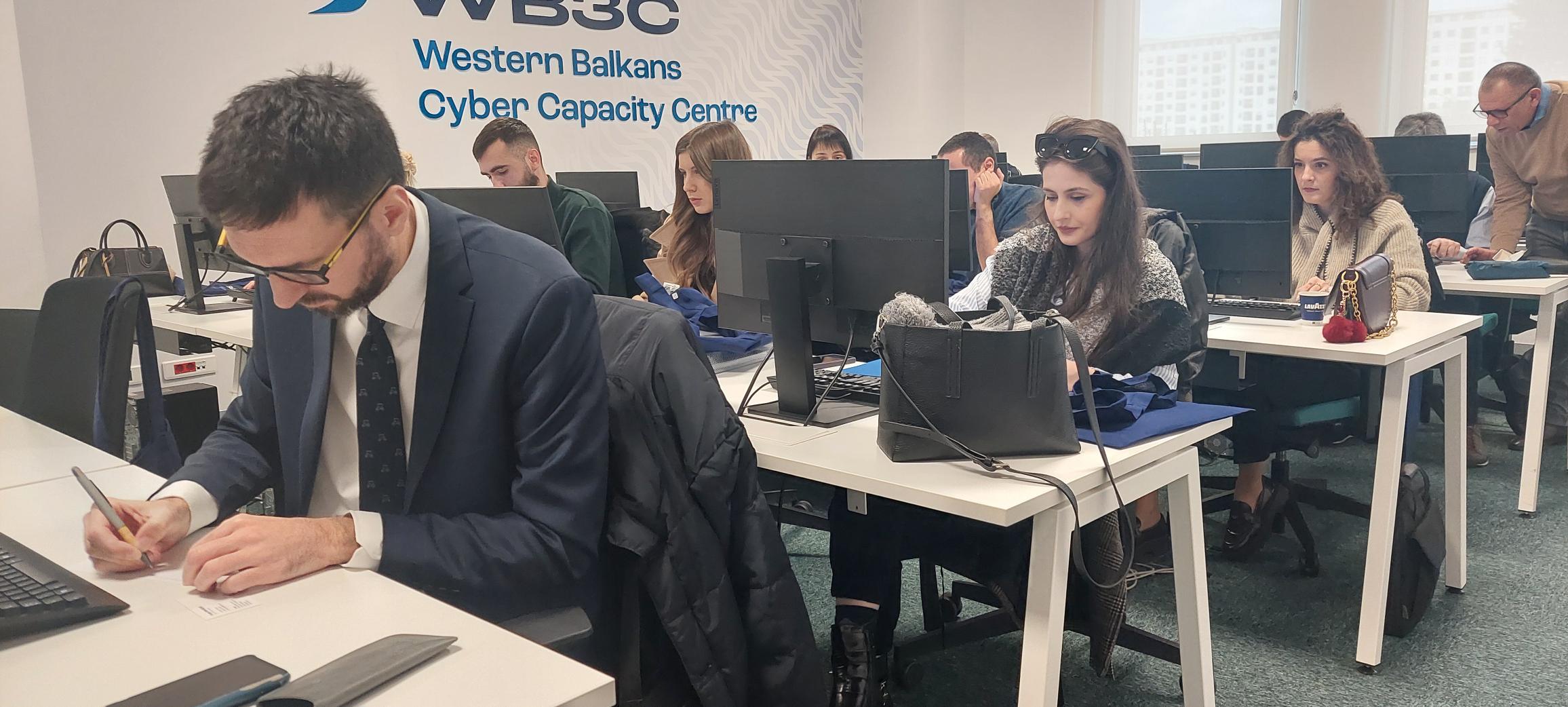The Western Balkans Cyber Capacity Centre (WB3C) will host a training program on Artificial Intelligence (AI) Applied to Law Enforcement Agencies from November 13th to 15th, 2024, at its premises in Podgorica. This training is designed for leaders in law enforcement, the judiciary, and data protection agencies, focusing on the potential applications and implications of AI within the field of internal security.
Across three days, participants will engage with six modules, covering topics such as the role of AI in the private sector, generative AI, ethics and regulatory considerations, and specific applications of AI for law enforcement. Attendees will gain insights into how AI can enhance investigative processes while addressing relevant ethical and regulatory challenges.
This course meets a strategic challenge defined by the AI Act to ensure that artificial intelligence systems (AIS) are used in a controlled and responsible manner.
The objectives of this course are
- understanding how AI systems work
- understanding the geopolitical and legal issues
- defining an AI strategy dedicated to the LEA
- AI applications for the protection of citizens
- future prospects and challenges
The workshop will be led by two distinguished experts on artificial intelligence and robotics applied in homeland security, Dr. Ysens de France and Brigadier General Patrick Perrot. Their expertise will provide invaluable insights into the intersection of AI, law enforcement and national security, guiding discussions on the application of technology in homeland security and the fight against cybercrime.
This three-day training is organized for security officers and police investigators from the Western Balkans, highlighting the importance of continuous education and training of law enforcement officers in emerging technologies in order to keep up with the evolving threats in the digital space.
Dr. Ysens de France is a distinguished legal scholar specializing in artificial intelligence (AI) and military robotics, particularly in the realm of Lethal Autonomous Weapon Systems (LAWS). She earned her doctorate in public law with a focus on the legal implications of autonomous military systems on the battlefield. Her research offers a forward-looking and interdisciplinary perspective on the challenges posed by technological advancements in defense.
In her professional career, Dr. de France has held several notable positions:
- Professor of AI and Law: Since September 2020, she has been teaching at aivancity School for Technology, Business & Society in Paris-Cachan, where she imparts knowledge on AI and robotics law.
- AI Mission Officer: Beginning in January 2022, she has served as an AI mission officer for the French National Gendarmerie, advising on the development and deployment of AI tools within the organization.
- Lecturer in Digital Law: Since January 2022, she has been teaching digital law and AI law at the University of Paris 1 Panthéon-Sorbonne.
Dr. de France is also an expert member on AI and ethics at Hub FranceIA and serves as the Director of Prospective at the Institut Sapiens. Her extensive experience and research make her a leading authority on the intersection of law, AI, and military applications.
Brigadier General Patrick Perrot serves as the Coordinator for Artificial Intelligence and Data Strategy within the French Gendarmerie Nationale and as the AI Advisor to the Cyber Command at the Ministry of the Interior. Combining a strong academic background (PhD in AI) with extensive field experience, General Perrot has pioneered the application of AI in law enforcement, particularly in speaker and facial recognition and decision analysis, to enhance security and operational effectiveness. He is one of the architects of the AI strategy within the Gendarmerie Nationale, and his work continues to shape the integration of advanced technologies in national security.
In addition to his role in the Gendarmerie, General Perrot is:
- An associate researcher at the Artificial and Natural Intelligence Toulouse Institute (ANITI), where he contributes to the Chair of Law, Accountability and Social Trust in AI, as well as to the Center for the Studies and Treatment of Radicalization.
- The founder of the "AI and Security" Chair, which fosters cooperation between the Ministry of the Interior and universities and contributes to research on emerging security issues to prepare for the future.
- A member of the EU AI Board Expert Committee, where he contributes to the application of the AI Act.
- Co-chair of the EU Strategic Group on AI, which gathers 16 law enforcement agencies.
Additionally, General Perrot is active in several think tanks, serving as a member of the administration council of Hub France IA and as a security expert at the EUROP IA Institute.






